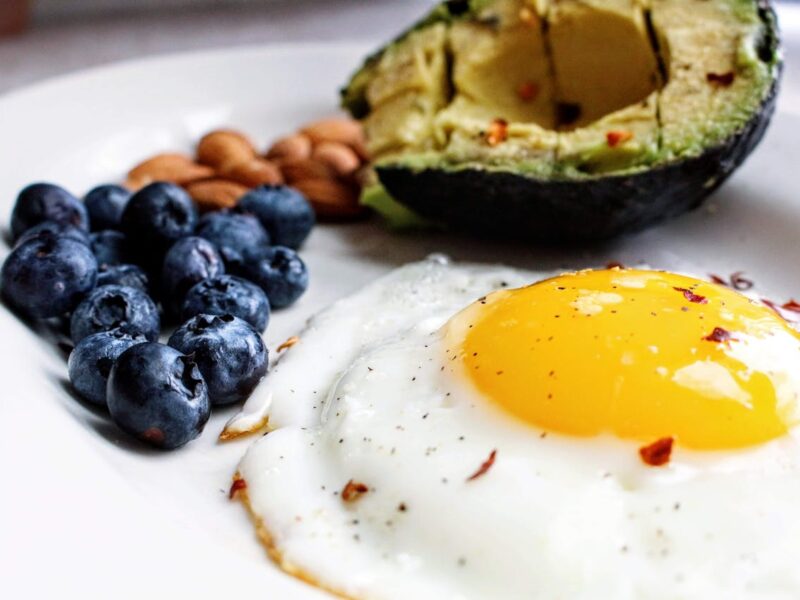Students nowadays have very hectic schedules. Keeping track of personal and professional responsibilities, along with all of the studying and lectures, can be an exercise of the most extreme concentration. How then could a student who already feels overwhelmed student who already feels overwhelmed add more to their already full plate during such a rigorous semester? One choice could be a ketogenic (keto) diet. Whilst keto is often noted for its health benefits to the body, the mental benefits to students pose a special relevance. By examining how the keto lifestyle can benefit students through its effects on the brain, it is possible to identify ways that a student can achieve peak mental clarity and focus. Overall, we shall uncover the ways that the keto lifestyle can provide the best mental health support for students. If academic pressure becomes too overwhelming, students might also consider a coursework writing service like Academized, which assists with writing assignments. This service can help students manage their workload more effectively, allowing them to focus on their studies without feeling overloaded.
1. Stable Energy Levels Throughout the Day
Very simply put, consuming fat on keto helps your body shift from running on glucose (which is essentially sugar, or carbs) to running on fat. When you’re in a state of ketosis, the fuel source in your body is no longer glucose but ketones. Your body has converted fat into usable energy. Although most of our neurons can operate using either glucose or fat, your brain runs optimally on ketones. This means fewer energy dips throughout the day. When you’re on keto, your brain runs on a more consistent, steady stream of energy. Plus, your body doesn’t need the next meal to give you a boost of dopaminedopamine in order to stay focused – the same dopamine that makes you crave your next energy source. This means no more caffeine. Forget energy drinks – or their faux-natural alternatives that offer the same jittery boost thanks to added sugars and caffeine. You don’t need them.
Glucose vs. Ketones
Carbohydrates cause blood sugar spikes that can lead to energy crashes, leaving students feeling sluggish and distracted. With ketones, brains get a steady stream of fuel, leading to more consistent focus for those long study sessions, without mental fatigue.
2. Improved Cognitive Function
You could even find your brain on ketones is a better brain, as many people switch the way they think on keto, reporting improved focus and more clarity on the issues they’re working on, improved problem-solving and, for students, increased ease in grasping difficult subject matter, better memory, and faster recall. For students facing these challenges, using a top essay writing service can further help streamline their academic tasks, giving them extra time to focus on complex topics.
Brain Fog vs. Mental Clarity
Eating carbs in large quantities causes brain fog, a problem where your brain feels slow and unfocused. A keto diet lifts this kind of fog so that your brain is clear and able to think well (students, are you paying attention? In particular, when you’re studying something difficult, or preparing for an exam?)
3. Better Mood Regulation
Students often experience high levels of stress, whether it is due to high pressure like exams or just trying to cope with the pressures of social life with studies. The ketogenic lifestyle can help to balance mood swings and reduce anxiety. With optimal blood sugar levels, students won’t experience as much sudden dips in mood or irritability.
Blood Sugar Fluctuations vs. Stable Moods
Sudden spikes and crashes in blood sugar in a Standard American Diet are believed to contribute to mood swings and mental instability. Because keto works to keep blood sugar balanced, it can lead to more stable moods, and promote a calm mental state that can help a student better handle stress.
4. Enhanced Memory and Learning
Ketones can help to provide neuroprotective effects, meaning that they can preserve and support brain function. This is particularly useful for students, who need to retain large amounts of information and recall it at the right time for exams.
Short-Term vs. Long-Term Learning
Whereas a high-carb diet might be a short-term boost for cramming for an exam, keto supports the long-term health of your grey matter. Since ketones provide a steady stream of energy, they help students stay focused for longer, and also help them to retain what they learn hours after the initial study session.
5. Reduced Inflammation in the Brain
High-carbohydrate, high-sugar diets provoke inflammation everywhere in the body, including in the brain. Mild chronic inflammation in the brain creates a hazy, dull signal, which in turn leads to slower processing speed – and an impairment in cognitive function. A low-inflammatory diet such as the keto might help – less sugar and fewer carbohydrates in the body mean a less inflamed brain, and a quicker, sharper mind for the student.
Inflammation vs. Cognitive Agility
When inflammation resolves, brains work better. Students will think with more precision. They will be able to process information faster, which helps them think better, a prerequisite for deep thinking and problem-solving – essential elements of academic success.
6. Fewer Distractions Due to Hunger
Students often get hungry during lengthy study sessions, but those following a keto diet stay full much longer, thanks to a steady infusion of fat. This means fewer reasons to take a study break – for a snack or drink, say – and fewer distractions caused by hunger pangs and cravings.
Hunger on a High-Carb Diet vs. Satiety on Keto
What’s more, because keto keeps blood sugar fairly steady, it can suppress appetite more powerfully than a carb-heavy diet, in which blood sugar spikes and crashes with every meal, leaving us hungry again soon after we eat. If your stomach growls when you try to do homework, the keto diet might be right for you.
7. Improved Sleep Quality
Sleep is just as important for our memory consolidation and mental performance as it is for our ability to learn something new. The keto lifestyle is conducive to sleep regulation, stabilizing blood sugar levels throughout the day and night, and helping us to sleep better. Does keto make you sleep better? The answer is a resounding yes for many people. As a student, this means you wake up fully rested and ready to face the day.
Poor Sleep vs. Restorative Sleep
They’re not necessarily hungrier, but they’re more in need of carbs; just like they need starchy foods to get through the day. Keto gives students better sleep, which makes them feel more alert and that makes it easier to learn. For the first time since they began studying, students who eat lots of carbs feel refreshed and alert when they wake up. And students burn fat as fuel, enabling them to learn more effectively.
Keto vs. High-Carb Diet for Mental Performance
|
Aspect |
High-Carb Diet |
Keto Diet |
|
Energy Levels |
Frequent crashes, need for snacks |
Stable, consistent energy |
|
Mental Clarity |
Prone to brain fog |
Clear-headed, focused |
|
Memory |
Short-term boost |
Long-term retention, sharper recall |
|
Mood Regulation |
Mood swings due to blood sugar dips |
Stable, calm mood |
|
Hunger |
Frequent hunger, cravings |
Full for longer, fewer distractions |
|
Sleep Quality |
Poor sleep quality, grogginess |
Better sleep, wake up refreshed |
|
Inflammation |
Higher levels of brain inflammation |
Reduced inflammation, faster thinking |
Conclusion
Besides the physical health benefits of ketosis, the keto lifestyle can give a significant boost to student mental and cognitive abilities through greater focus and attention. On keto, you won’t have the highs and lows in energy that can come from a constant cycle of ingesting refined sugars and then burning them off and/or crashing from the caffeine rewards. You will be able to sustain focused attention longer, as your brain doesn’t have to be constantly engaged in metabolising glucose. Your short- and long-term memory will improve. You will have fewer acts of brain blockage and be less likely to zombie out. You will have a greater capacity to focus on your studies.
Want to unlock greater wellness?
Listen to our friends over at the Wellness + Wisdom Podcast to unlock your best self with Drew Canole of Organifi:








 What’s the Difference Between Physiotherapy and Physical Therapy?
What’s the Difference Between Physiotherapy and Physical Therapy?